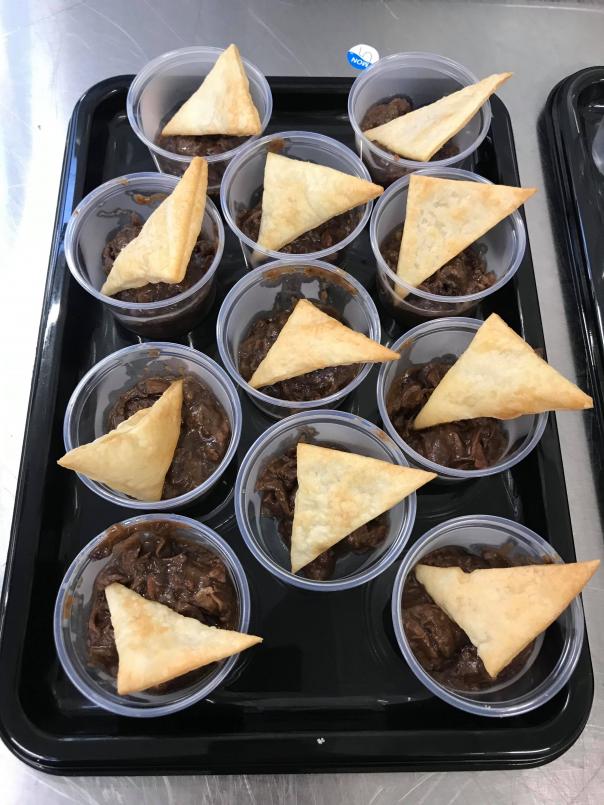
Scotland’s local authority catering and cleaning organisation ASSIST FM set up a national working group earlier this year to help councils with the challenge of menu development in the light of new regulations.
With resources scarce and the menu development and analysis process both extremely laborious and lengthy, it was felt a collaborative approach would work best.
Once a menu was finalised, the group oversaw recipe and product testing. The final product, which includes a number of special diet menus that sit alongside the main menu, was launched at the ASSIST FM seminar last month to assist all local authority meal planners.
The group was led by Christine Boyle, senior manager for catering, cleaning, commercial events and food, Argyll and Bute Council and Nicola Joiner, catering coordinator, East Renfrewshire Council, who explain how the collaborative process worked.
Q: When was the working group formed and who were the members?
CB & NJ: The menu working group was formed in January 2023 following discussion with ASSIST FM members about reduced resources in menu planning and difficulties in analysis. We also wanted to investigate if we could standardise some of the products we are purchasing across all authorities. All 32 local authorities were invited to take part and we have 24 actively involved in the process.
Q: Can you tell us about the challenges to caterers presented by the new regulations?
CB & NJ: The updated school food regulations, The Nutritional Requirements for Food and Drink in Schools (Scotland) Regulations 2020, increased access to fruit and vegetables, reduced sugar and reduced the availability of red and red processed meat. There were also changes to the nutrient standards. In addition, while there was always a weekly energy tolerance, a new daily energy tolerance has been introduced to reduce the variation and extremes in energy content on different days throughout the week.
While we all strive to ensure all menus are compliant with the guidelines, we also need to ensure the meals offered in schools include food our children and young people want to eat, and this is where our biggest challenge lies. Many of us also have the Soil Association Food for Life served here award, either bronze or silver.
While some Local Authorities have menu planning resource, others use operational staff or catering staff to plan menus. By bringing this group together we can help those that are struggling, but also gain ideas from each other to use in our own area.
Q: Describe how the working group carried out this task?
CB & NJ: Our first step was to find out what each of the local authorities currently do. So we surveyed the group to find out how many weeks they had per cycle, how often the menu changed, how many options were available, what was included in a Free School Meal, whether they were Food for Life compliant and to what level.
We gathered a list of products used in each area, which dishes were must haves, what is included in salad bars etc.
Once all the information was gathered, we agreed on what our menu template would look like. We broke up into four sub-groups, each group planning a menu. This went back to the main group for agreement. We then had a number of volunteers carry out analysis and another group of volunteers to pull together associated special diet menus.
Q: Tell us what happened next?
CB & NJ: The next step was to do some recipe and product testing with the aim of standardising some of the product lines used across local authorities. This would, in turn, support suppliers and result in more sustainable procurement and cost savings.
Q: How will the work help local authorities?
CB & NJ: It is hoped this will help not only those local authorities with reduced menu planning resources, but also those new to the service. A long term aim will be to standardise products, collaborate with each other when testing recipes and products and to continue to share knowledge across all areas.
Q: Were there any challenges in persuading different local authorities to collaborate?
CB & NJ: This has been a fantastic exercise, and all who took part gained a lot from it. We didn’t have to convince any members, and we have had a number of authorities that weren’t involved now asking to be included going forward.
Q: Do you think the experience of this working group offers a template for greater collaboration on other issues?
CB & NJ: Yes, the collaboration and sharing of ideas has been an invaluable experience, and we know others also gained a great deal. ASSIST FM has always been at the forefront of facility services in Scotland, and now more than ever, so we think this is just another example of what we do really well.